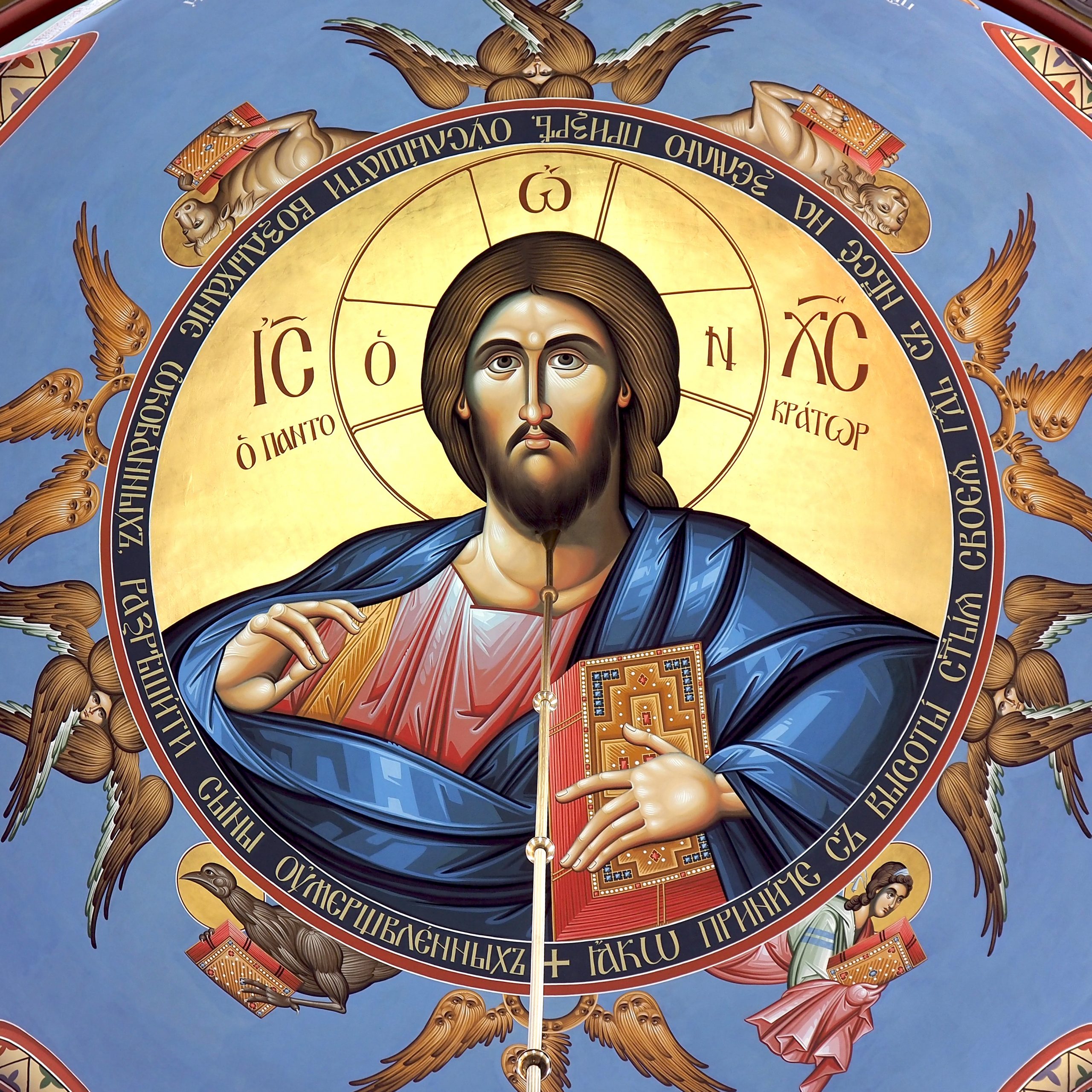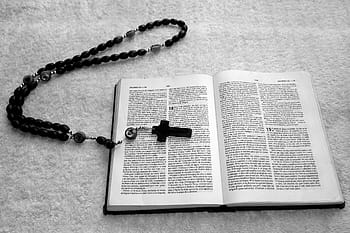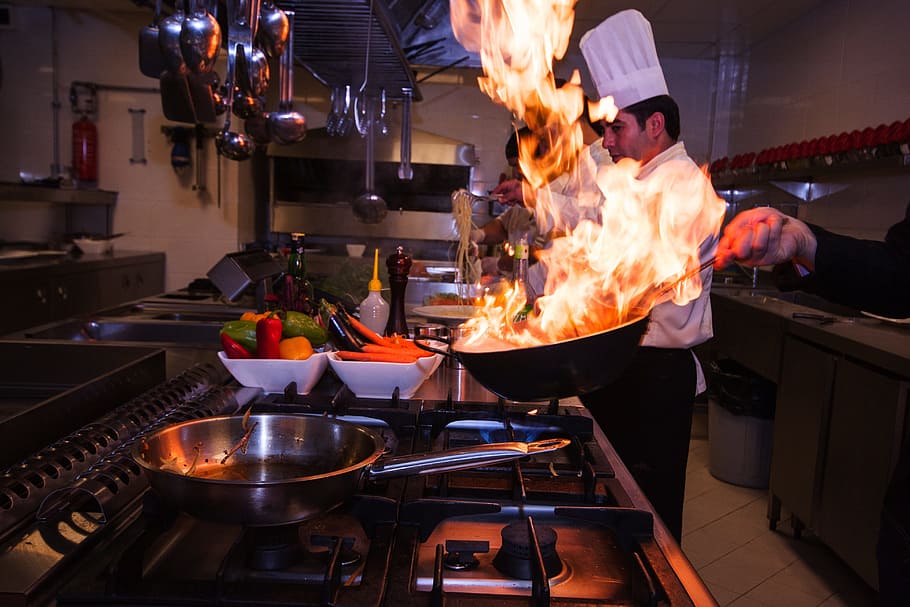King Herod heard of it; for Jesus’ name had become known. Some said, “John the baptizer has been raised from the dead; that is why these powers are at work in him.” But others said, “It is Elijah.” And others said, “It is a prophet, like one of the prophets of old.” But when Herod heard of it he said, “John, whom I beheaded, has been raised.” For Herod had sent and seized John, and bound him in prison for the sake of Herodias, his brother Philip’s wife; because he had married her. For John said to Herod, “It is not lawful for you to have your brother’s wife.” And Herodias had a grudge against him, and wanted to kill him. But she could not, for Herod feared John, knowing that he was a righteous and holy man, and kept him safe. When he heard him, he was much perplexed; and yet he heard him gladly. But an opportunity came when Herod on his birthday gave a banquet for his courtiers and officers and the leading men of Galilee. For when Herodias’ daughter came in and danced, she pleased Herod and his guests; and the king said to the girl, “Ask me for whatever you wish, and I will grant it.” And he vowed to her, “Whatever you ask me, I will give you, even half of my kingdom.” And she went out, and said to her mother, “What shall I ask?” And she said, “The head of John the baptizer.” And she came in immediately with haste to the king, and asked, saying, “I want you to give me at once the head of John the Baptist on a platter.” And the king was exceedingly sorry; but because of his oaths and his guests he did not want to break his word to her. And immediately the king sent a soldier of the guard and gave orders to bring his head. He went and beheaded him in the prison, and brought his head on a platter, and gave it to the girl; and the girl gave it to her mother. When his disciples heard of it, they came and took his body, and laid it in a tomb. The apostles returned to Jesus, and told him all that they had done and taught.
Mark 6: 14-30 (Gospel of the Feast of the Beheading of St. John the Baptist)
At some point (and probably at many points) in our lives, we will be the victim of someone’s greed or ego. There is virtually no escaping it. Perhaps, then, one of the marks of a Christian life is how one deals with such oppression.
There will also be points in life where we will our egos will be tempted. We’ll be challenged to do things that perhaps are out of our character, but the combination of peer pressure and building up of our egos will cause us to succumb. For those of us who are older, think about dumb things we did in youth. And we think “that’s not the person that I am today.” Of course it isn’t. However, when trying to find ourselves, some of us make big mistakes which are hard to recover from. Today, we meet a man who made a colossal mistake, as well as his unfortunate victim.
Herod the King was a loyal subject of the Roman Empire. He also was not a very moral man. For he had stolen his brother Philip’s wife, Herodias, and took her as his own wife. Herodias had insisted that Herod imprison John, since he was outspoken against them. Herodias, we are told, had a grudge against John, and she wanted to kill him but could not. (Mark 6:19)
Herod’s relationship with John was “curious.” He feared John, knowing that he was a righteous and holy man, and kept him safe. (6:20) He obviously wanted John away from him and Herodias, since he did not approve of their relationship. And yet, as we read in 6:20, “When he (Herod) heard him (John), he was much perplexed, and yet he heard him gladly.” Even though John must have been outspoken with Herod about his inappropriate relationship with Herodias, Herod still had a respect for John and enjoyed listening to him.
On Herod’s birthday, he held a huge banquet. There was dancing, and undoubtedly drinking, and people’s inhibitions were dropping as time went by. Why is this so apparent? Because for Herod to offer the daughter of Herodias up to half of his kingdom, or whatever else she wanted, just for dancing for him, he must have been either super drunk or super crazy. When the girl went to her mother and asked her what she should request from Herod, the mother cunningly told her to ask for the head of John the Baptist. Now, when told of this, Herod was super trapped, because he had even sworn an oath in front of his guests to give the girl whatever she wanted. Now there was peer pressure, from his wife, her daughter, and all the guests to do something Herod knew was wrong. The Bible says that Herod was “exceedingly sorry.” (6:26) And he then ordered John to be beheaded.
John, for his part, was the loyal servant. John was well known as “the baptizer,” a pious man in the wilderness whom people would go to in order to be “baptized”. At that time, baptism was akin to how we do confession in the Orthodox Church. People would go periodically to be ritually washed of their sins. John had a group of disciples, loyal followers. In the Gospel of John, 3:28-30, we read that John the Baptist told his followers, ‘You yourselves bear me witness, that I said I am not the Christ, but I have been sent before Him. He who has the bride is the bridegroom; the friend of the bridegroom, who stands and hears him, rejoices greatly at the bridegroom’s voice; therefore this joy of mine is now full. He must increase, but I must decrease.” Indeed John was ready to decrease to the point of his own death. He understood his role, and he fulfilled it.
The lessons from today are two—We must fulfill whatever role God calls us to fulfill in life. Some of these roles are difficult, some of us will be called upon to do some very difficult things. Are we ready to decrease in order for Christ’s call in us to be increased?
Secondly, like Herod, we will all be prompted to do stupid things, or things that are out of character. This might be from peer pressure, or from our own ego. Will we put ourselves in that spot to begin with? And if we are in that spot, will we do the right thing or continue down the wrong path. Herod stupidly made a promise. When he realized his mistake, he was willing to murder John than humble himself and correct it. When we make mistakes, we have to have the humility to correct them, and the courage to stand up for what is right, even when if we’ve promised to do wrong.
Once again Herodias is in a rage; once again she is troubled. Oh, dance full of treachery; oh, drinking party of deceit! The Baptist was decapitated, and Herod was agitated. At the intercession of Your Forerunner, O Lord, grant peace to our souls. (Doxastikon, Matins, Beheading of St. John the Baptist, Trans. by Fr. Seraphim Dedes)
Let’s work hard not to be in compromising positions that lead us to make stupid mistakes. And when we make an error, let’s have the courage to do the right thing and not compound it!




